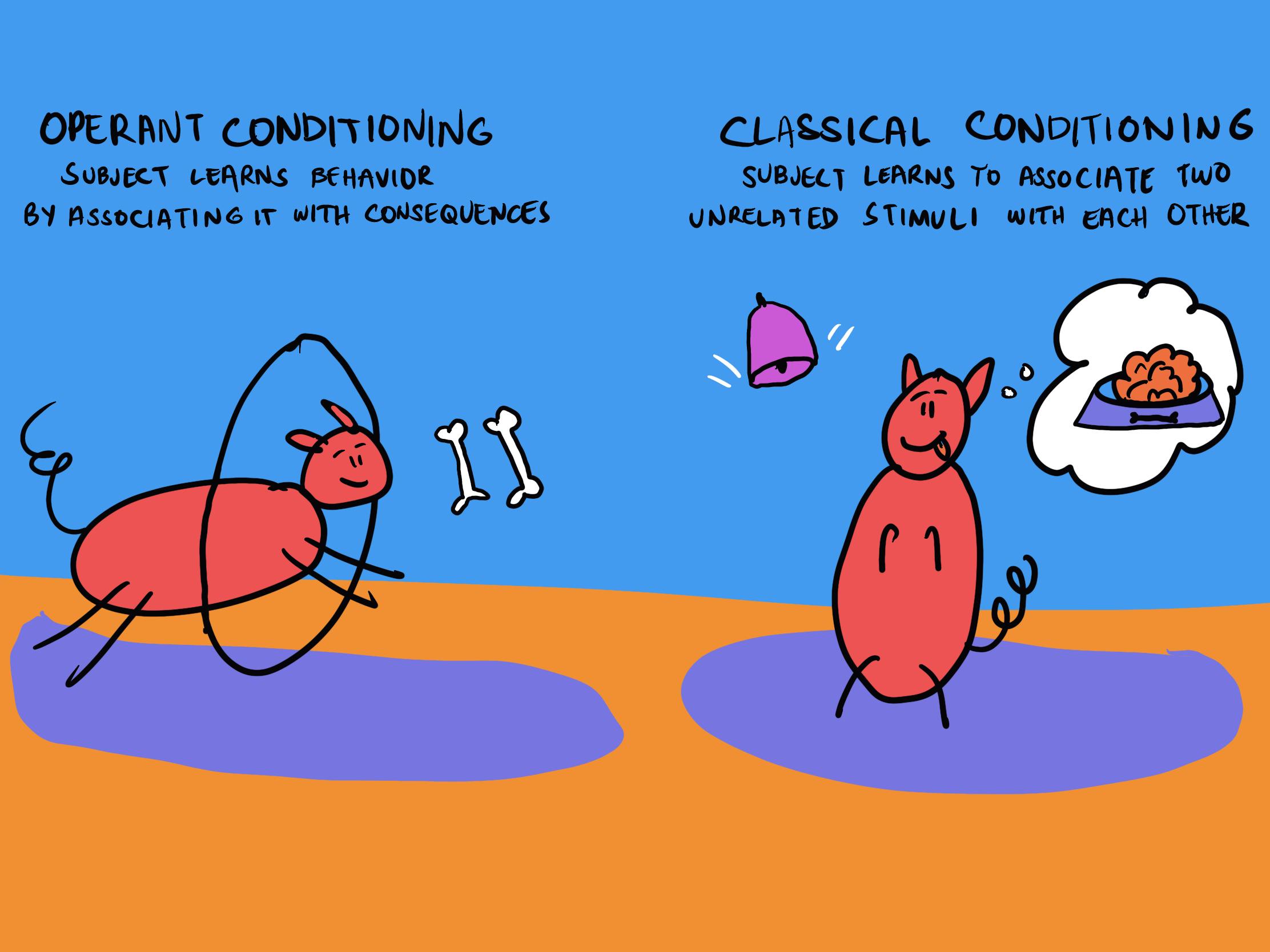Behaviorism
What is Behaviorism?
Behaviorism is a theoretical approach to psychology popularized in the 20th century by John B. Watson and B.F Skinner. This school of thought focuses only on observable behavior and the environmental stimuli that produce it. It is often tied to learning, and asserts that behaviours are learned through interaction with the environment through either classical conditioning or operant conditioning.

Behaviorism
It is no surprise that when you have a bowl of dog food in your hands, your dog becomes the best show dog on earth, effortlessly performing all the tricks it has learned. Sometimes you may even find your dog running through the list of tricks before you tell them which one to do. When you don’t have dog food in your hands, however, your furry friend will likely seem completely disinterested in performing. This behavior can be explained by behaviorism, sometimes referred to as behavioral psychology.
Behaviorism is a theory of learning; it’s based on the idea that our behavior is learned as a result of interaction with our external environment. Interaction with our external environment can include an interaction with a certain person, a certain object, or with certain surroundings.
Our behavior is learned through a process called conditioning. Conditioning is a learning process that can lead to habits and is the result of training ourselves to react a certain way in different scenarios.1 Behaviorism presents two main types of conditioning:
- Classical conditioning: when a dog learns to get excited when we walk towards the bag of dog food because the dog has learned that it would mean they get to eat right away.
- Operant conditioning: when a trainer successfully teaches a dog how to sit on command with the help of incentives, such as a treat every time they do it correctly.
Strong believers of behaviorism argue that with the right conditioning, anyone can be trained to do any task within their capabilities, regardless of one’s personality.1
In behavioral psychology, there are two types of behavior: overt behavior, which is what everyone sees publicly, and covert behavior, which is inner and private. Behaviorism as a field of study looks only at observable external behaviors rather than internal mental states. Behaviorists argue that since thoughts and emotions cannot be objectively measured, psychology should focus instead on stimulus-response relationships (like a dog’s response to food) that can be observed and analyzed.
A person who has been punished is not thereby simply less inclined to behave in a given way; at best, he learns how to avoid punishment.
– Burrhus Frederic Skinner in his book, Beyond Freedom and Dignity
About the Author
Joshua Loo
Joshua was a former content creator with a passion for behavioral science. He previously created content for The Decision Lab, and his insights continue to be valuable to our readers.



















